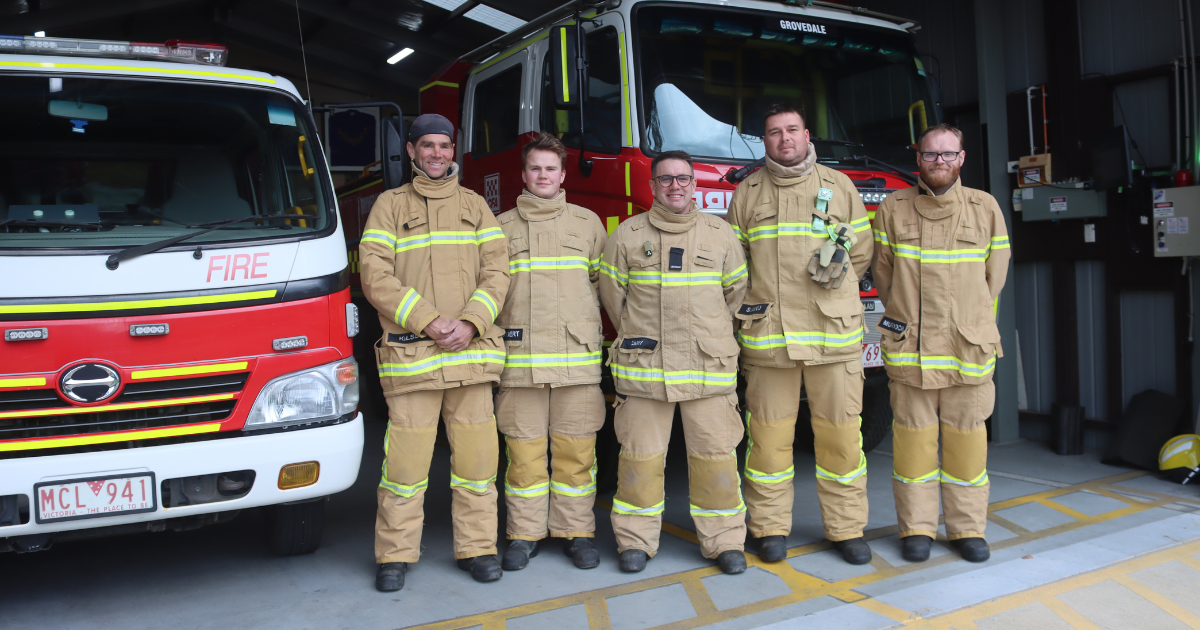Defib roll-out has WDEA Works ready to zap cardiac arrests

WDEA Works Geelong staff members Davina Narrainen and Cameron Boyd with one of the 24 AEDs on display. Photo: SUPPLIED
ALMOST 30,000 people pass way from cardiac arrest each year in Australia, and a local organisation is doing its part today to try and lower that number throughout its 19 locations.
WDEA Works, an organisation with locations in Corio and Geelong that finds open employment opportunities for people living with a disability, is completing a roll-out of 24 Automated External Defibrillators (AEDs or defibs) to each of its full-time sites coinciding with ‘Restart a Heart’ Day.
The day itself, falling on October 16, encourages Australians to help improve the cardiac arrest survival statistic that nine out of 10 people will not survive an out-of-hospital cardiac arrest.
These easy-to-use life-saving devices will be accessible to both the community and WDEA Works, and are used to treat cardiac arrest, a condition that occurs when the heart unexpectedly stops pumping due to an underlying medical condition.
Of the total number of cardiac arrest-related deaths, 1500 occur in workplaces.
Without effective CPR and defibrillation (using an AED) there is around four minutes before the risk of irreversible damage or death sets in.
Every minute of delay reduces chance of survival by 10 per cent.
The use of an AED is a critical component when administering Cardiopulmonary Resuscitation (CPR) and also critical in the first aid management of a casualty.
“As a provider of CPR Training, WDEA Works knows the importance of access to an AED in the instance of sudden cardiac arrest,” WDEA Works Training, first aid trainer and assessor Kristine Zimmer said.
“It makes sense that as an organisation who is dedicated to the health and safety of our staff and our communities that we install AEDs.”
WDEA Works has also communicated the location of the AEDs with Ambulance Victoria.
If a cardiac event occurs nearby during office hours, the ambulance will share the location of the AED with a ‘responder’ who will be able to utilise it.
“The best part about the AEDs is that they are self-explanatory, we want to make sure everyone feels comfortable and empowered should they ever find themselves in the unfortunate event of needing to administer first aid to a cardiac arrest casualty,” Ms Zimmer said.
For people not trained in CPR or first aid, they can still utilise the AEDs confidently. The technology of the AED analyses the heart rhythm before it determines whether a shock is required to the heart.
The device provides a step-by-step guide to the user, ensuring both the safety of the responder as well as the casualty.
It is important to remember there are three things to do when assisting someone who has had a cardiac arrest:
1. Call 000
2. Push – Perform CPR
3. Shock – Using an AED
For more information visit the Restart a Heart Day website.
If you’d like to learn more about undertaking a ‘Provide First Aid or CPR’ course with WDEA Works Training please visit www.wdeaworks.org.au/training/first-aid

















